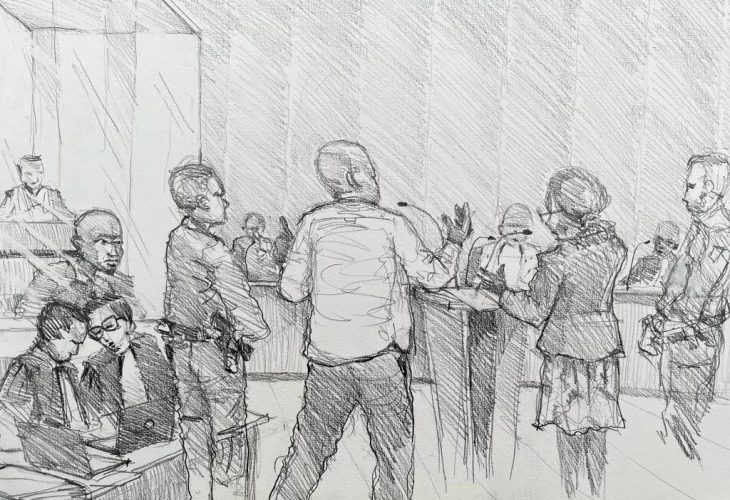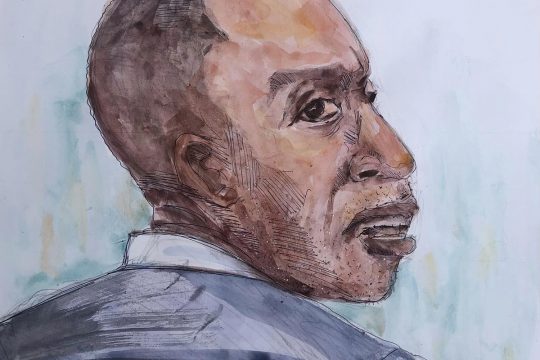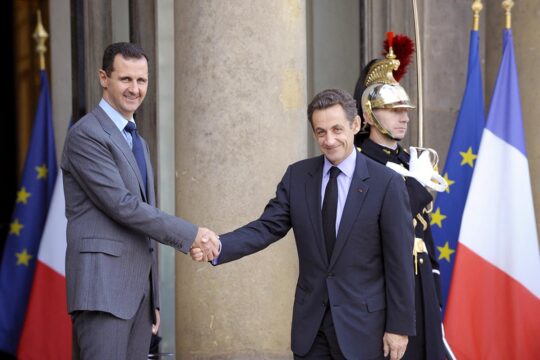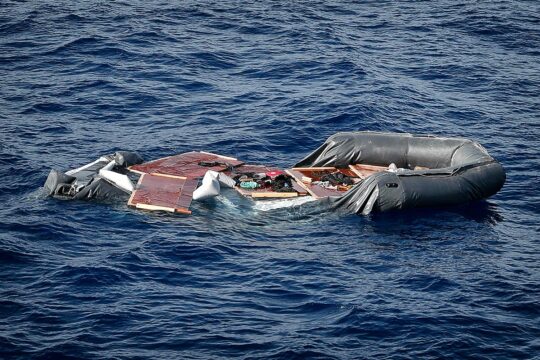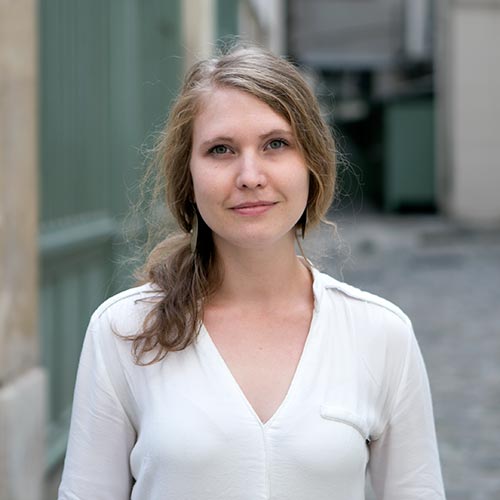Kunti Kamara’s trial, which opened in Paris on October 10, is stirring up the ghosts of the first Liberian civil war. In the early 1990s this Liberian of Mandingo ethnicity, now 47, headed an armed contingent of the United Liberation Movement for Democracy (ULIMO). ULIMO was fighting the National Patriotic Front of Liberia (NPFL) led by the man who would become Liberia’s president, Charles Taylor. In 1993, Kamara reportedly participated in the capture of Foya in Lofa County, and is said to have committed multiple acts of violence during the following year.
According to the indictment, Kamara was complicit in a "massive and systematic practice of torture or inhumane acts, inspired by political, philosophical, racial or religious motives and organized as part of a concerted plan against a civilian population group”. These acts are qualified as “crimes against humanity". But the legal terms do not prepare one for the violence as described by witnesses and victims. Their accounts are a long litany of horror that echo the descriptions two years ago before the Federal Criminal Court in Bellinzona, Switzerland. At the end of the Swiss trial, Alieu Kosiah, former commander of ULIMO, was sentenced to 20 years in prison for war crimes.
The two trials mirror each other. Kamara and Kosiah, a higher-ranking officer, were accused of some of the same crimes in the early 1990s in Foya, Lofa County, where both deny having been present. They knew each other in Liberia and crossed paths years later in the Netherlands, where Kamara sought refuge in 2001. When Kosiah was arrested and later tried in Switzerland, it was Kamara whom he called to testify on his behalf. The commander presumably expected his former brother-in-arms to confirm that he was not in Lofa County. According to the transcript of the hearing produced by the Swiss NGO Civitas Maxima, Kamara tried to defend his former superior, describing him as "a person who is not cruel”. But he also said that Kosiah was in Lofa County in 1993 and 1994.
The "conspiracy" of Civitas Maxima
Almost two years later, the situations are reversed. On Friday, October 21, it was Kosiah's turn to testify at the trial of his former comrade. The aim was to determine whether or not the accused - this time Kamara - was in Foya, Lofa County, at the time of the events.
Flanked by two gendarmes, Kosiah entered the courtroom like an orator, filling the space with his massive size and glib tongue. Faced with this and his grand gestures, you might almost forget Kamara, small and silent in his box.
Kosiah himself did not seem to be fully aware of why he was there, talking as if he were in the second round of his own trial. Invited to make a statement before being questioned, he gave it his all. For nearly an hour, Kosiah denounced in great detail a "conspiracy" of which he says he is victim, hatched by the NGO Civitas Maxima and its president, Swiss lawyer Alain Werner. The former warlord claims that Werner recruited and manipulated various individuals in Liberia so as to build cases against him and Kamara (who nodded his head from time to time in approval, while visibly struggling to follow the convoluted speech). "I have with me several documents that prove it, Mr. President!" said Kosiah with a wave of his arm. In the room, this brought a sigh from Werner. This was not the first time he had heard this speech. It was the same one Kosiah gave at his trial in Switzerland.
"Nobody here understands what happened”
But Kosiah also questioned the capacity of a European court to judge what happened in Liberia. On several occasions during the hearing, he said of the deputy prosecutor Aurélie Belliot and civil parties' lawyer Sabrina Delattre that they "don't know what they are talking about" and "nobody here really understands what happened". "I think this case is too complicated to be judged by white people,” he even told the court president
When damning testimonies against Kamara were cited, Kosiah said they were not legitimate. "I am Mandingo, Kunti is Mandingo, to testify against ULIMO, you have to look for people who are not Mandingo. To understand the background of the war in Liberia, you have to understand who is accusing whom,” he repeated. Kosiah sees the testimony given as just a continuation of the conflict he took part in 30 years earlier. The court president tried to tell him that the court was "not judging the conflict" but "trying to find out if civilians who were not involved in the conflict were victims of atrocities", but it made no difference.
The lack of understanding between Kosiah and the court president increased further when it came to one of the most disturbing acts that Kamara is accused of in this trial – the murder of a schoolteacher and eating of his heart, in which Kamara and Kosiah are alleged to have participated. Asked about this, Kosiah replied:
- Mr. President, we are all human beings. We discovered fire a long time ago. I don't think any human being could eat a heart like that.
- You mean raw?" asked the judge. "Because if it had been cooked it would have been more humane?
Twenty minutes later, Kosiah was still desperately trying to explain that it was not about whether it’s right or wrong, but that in practice, eating a raw heart is complicated.
The capture of Foya
But while the former commander wore people out with his digressions and circumlocutions, it seems the prosecution and civil parties can still extract some useful elements from the hearing.
From the beginning, Kamara has not only denied participating in the crimes of which he is accused, but says they were committed by Taylor's men. Kosiah put forward the same line at his own trial, but the former commander now seems to have toned down his version. According to Kosiah, the practice of tabé - a torture technique - was indeed "the invention of Taylor's NPFL" but was "subsequently used by all parties" to the conflict. He also admitted that there were child soldiers within ULIMO. These are all things that Kamara has so far contested.
Above all, Kosiah told the court that Kamara did take part in the capture of Foya in early summer 1993 and was probably based there during the following months ("even if I can only assume so, since I repeat I was not there at that time"). The commander did, however, come across him "during a visit" in 1994. Since his arrest, Kamara has maintained that he was not based in the town of Foya in 1993 and 1994, and claims to have spent those long months on a frontline in Medikoma. Kosiah obviously has no knowledge of this frontline, for when questioned about the frontlines at the time, he did not mention it.
Four hours after his boastful entrance, Kosiah was thanked and left the courtroom handcuffed, under the tired gaze of the judges and jurors. He barely glanced at his former brother-in-arms. At this point it is every man for himself. Kosiah’s appeal will be heard in a few months, at the beginning of 2023, in Switzerland.


